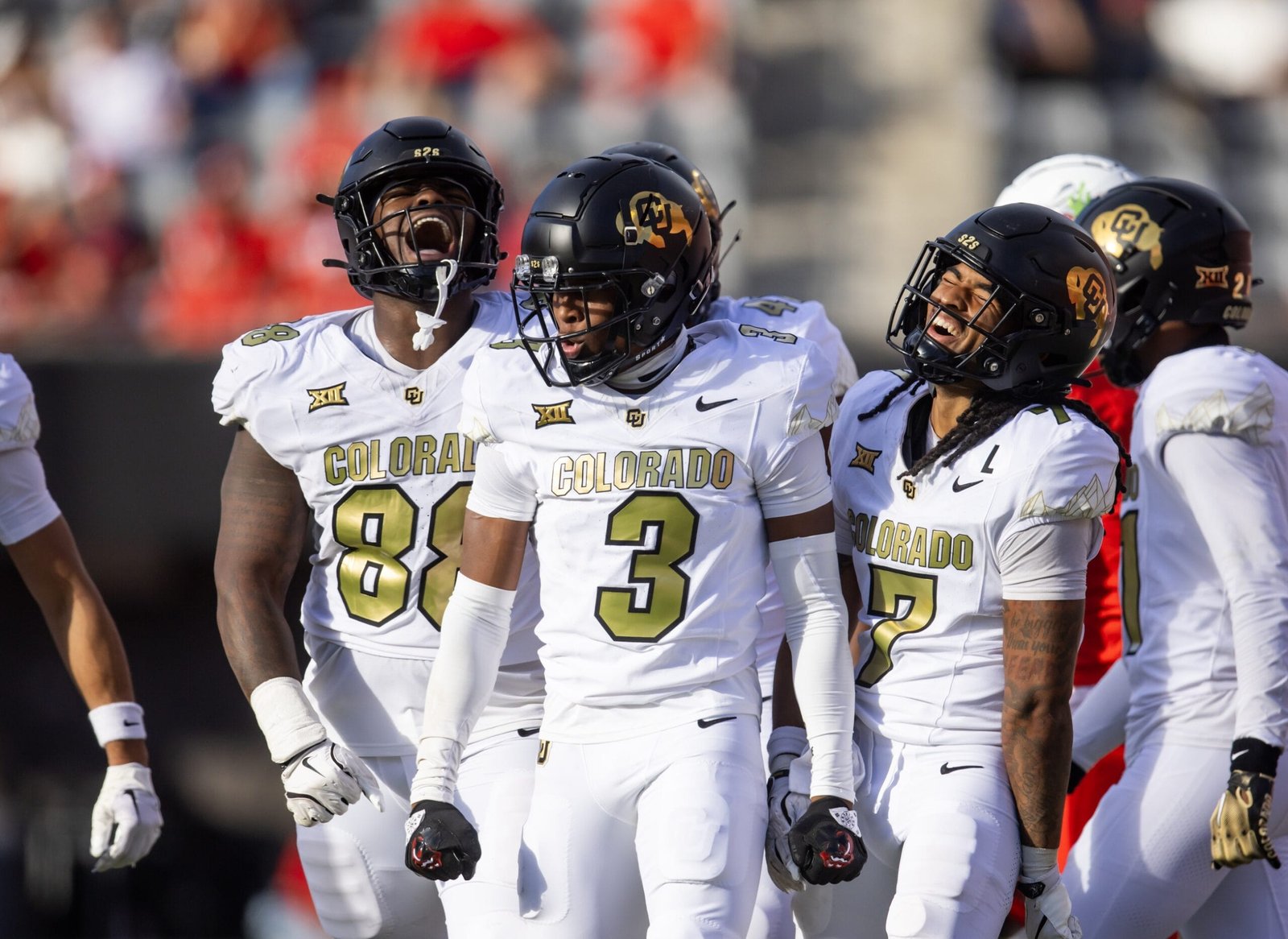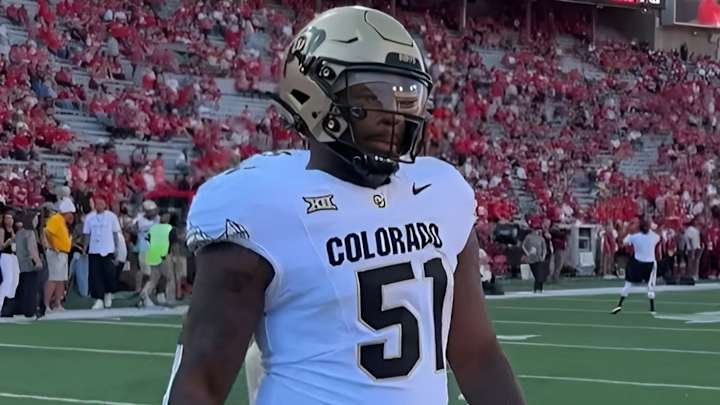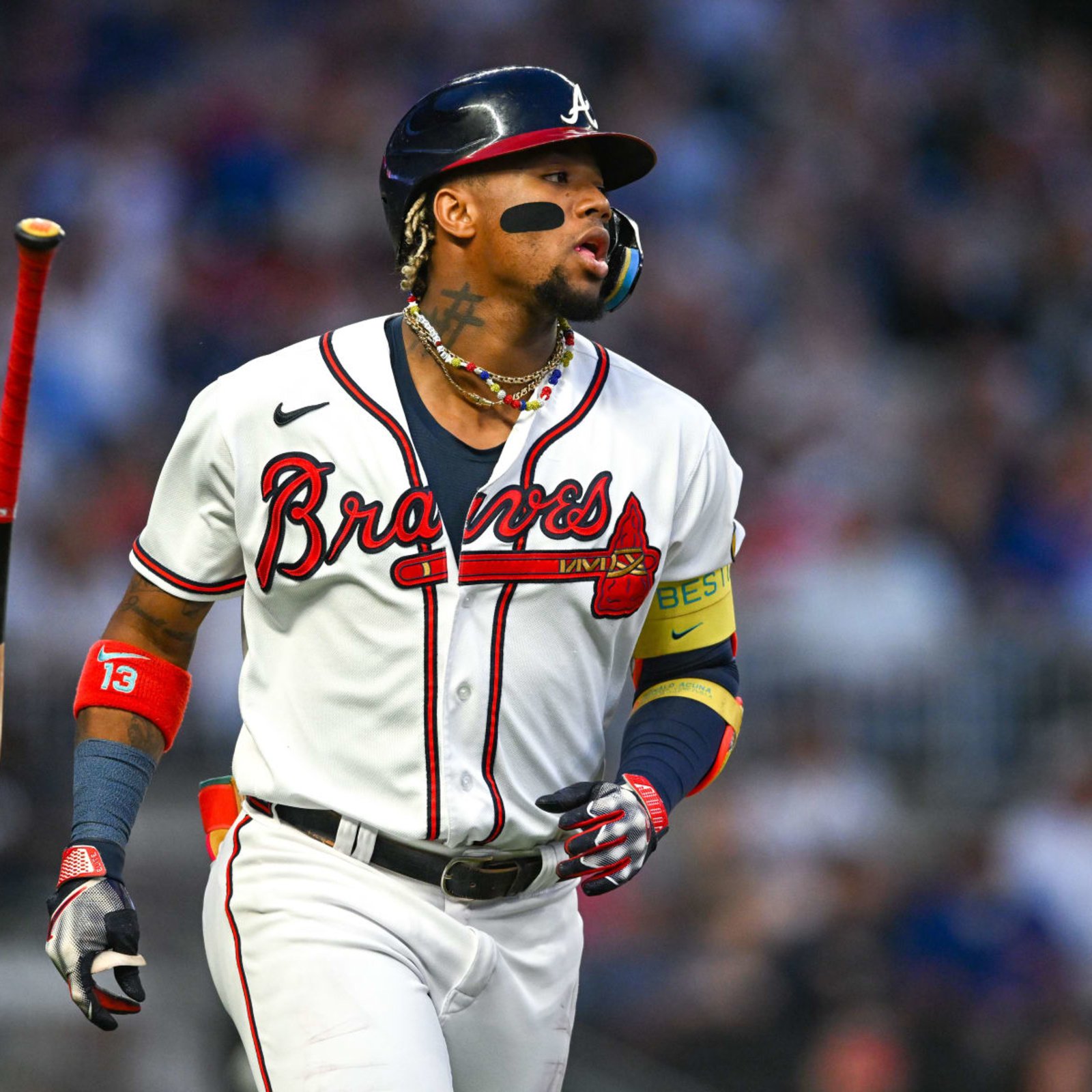Sport
Colorado Football: A Legacy of Passion and Perseverance

Introduction
Colorado football, representing the University of Colorado Boulder, has a rich and storied history that reflects the evolution of college football itself. From its inception in the late 19th century to its current status as a competitive program in the NCAA Division I Football Bowl Subdivision (FBS), Colorado football has showcased moments of brilliance, resilience, and passionate fan support. This blog post delves into the history, key milestones, significant players and coaches, and the future of Colorado football, highlighting why it remains an integral part of the university’s identity and the state of Colorado.
Historical Overview
Early Years (1890s-1920s)
The history of Colorado football dates back to 1890, making it one of the oldest college football programs in the United States. The team played its first game on October 25, 1890, against the Colorado School of Mines, resulting in a 12-0 victory. For many years, the Buffaloes played independently, participating in various regional competitions.
In 1934, Colorado joined the Rocky Mountain Conference, which provided the program with a more structured competitive environment. This period saw the emergence of early stars and the building of a dedicated fanbase, setting the stage for future successes.
The Formation of the Big Seven Conference (1947)
In 1947, Colorado became a charter member of the Big Seven Conference, further elevating its competitive status. This era saw the Buffaloes gaining national recognition, with their first significant success coming in 1948 when they secured their first conference title. The groundwork was laid for what would become a successful program throughout the 1950s and 1960s.
The Rise to Prominence (1980s)
The 1989 National Championship
The pinnacle of Colorado football came in the late 1980s under head coach Bill McCartney. The 1989 season was particularly remarkable, culminating in a national championship win in the 1990 Fiesta Bowl against Notre Dame. This victory solidified Colorado’s place among the elite programs in college football.
Led by quarterback Darian Hagan and a stout defense, the Buffaloes finished the season with an impressive 11-1 record, showcasing a potent blend of offensive firepower and defensive prowess. This championship season not only brought glory to the program but also ignited a fierce rivalry with schools like Nebraska and Oklahoma, setting the stage for memorable matchups in the years to come.
The “Miracle in Michigan”
Another defining moment in Colorado football history occurred in 1994 during a game against the University of Michigan. Trailing 26-21 with mere seconds left on the clock, Colorado executed a series of plays that culminated in a stunning 64-yard touchdown pass from Hagan to wide receiver Michael Westbrook. This last-second victory, known as “The Miracle in Michigan,” became one of the most iconic moments in college football history, showcasing the Buffaloes’ resilience and ability to perform under pressure.
The McCartney Era and Beyond
Continued Success
Throughout the 1990s, Colorado maintained its status as a competitive program. Under McCartney’s leadership, the Buffaloes made several bowl game appearances and won the Big Eight Conference title multiple times. The program produced numerous NFL players, including standout linebacker Alfred Williams and Heisman Trophy candidate Rashaan Salaam, who won the prestigious award in 1994.
In 1996, Colorado joined the newly formed Big 12 Conference, which further enhanced its competitive landscape. The Buffaloes continued to be a force in the conference, regularly contending for titles and participating in bowl games. However, the transition to the Big 12 also brought new challenges as the competition intensified.
Coaching Changes and Challenges
The late 1990s and early 2000s were marked by coaching changes and inconsistency on the field. After McCartney’s departure in 1994, several head coaches tried to recapture the program’s former glory, but success was elusive. The Buffaloes experienced ups and downs, including a notable 2001 season in which they returned to the Big 12 Championship Game, only to fall short.
The hiring of head coach Gary Barnett in 1999 revitalized the program. Barnett led the Buffaloes to a Big 12 title in 2001 and an appearance in the BCS Orange Bowl, where they faced the University of Miami. Despite a valiant effort, the Buffaloes lost the game, but the season marked a resurgence for Colorado football.
The Rise of New Talent (2010s)
The Return of the Buffaloes
The 2010s were a challenging decade for Colorado football, marked by coaching changes and struggles on the field. However, the hiring of head coach Mike MacIntyre in 2013 signaled a new direction for the program. MacIntyre emphasized a culture of accountability and development, leading to improvements in team performance and player recruitment.
In 2016, Colorado experienced a resurgence under MacIntyre, finishing with a 10-4 record and a trip to the Alamo Bowl. The Buffaloes showcased a powerful defense and a dynamic offense, highlighted by quarterback Sefo Liufau and standout wide receiver Shea Fields. This season was a testament to the program’s resilience and potential for future success.
The Legacy of Recent Stars

As Colorado football continues to evolve, several players have emerged as key contributors and future NFL prospects. Notable names include running back Phillip Lindsay, who made history as the first undrafted free agent to make the Denver Broncos’ roster and achieve a 1,000-yard season. Lindsay’s journey from the University of Colorado to the NFL serves as an inspiration to aspiring athletes, showcasing the potential for success regardless of the challenges faced.
The 2020s and Beyond
A New Era Under Coach Deion Sanders
In December 2022, Colorado made headlines by hiring NFL Hall of Famer Deion Sanders as its head coach. Known for his charismatic personality and ability to connect with players, Sanders brought a fresh energy to the program. His vision of building a competitive team and creating a culture of excellence resonated with recruits and fans alike.
Under Sanders’ leadership, Colorado embraced a new era of football, focusing on player development, recruiting top talent, and revitalizing the fan experience. His impact was felt immediately, as the program attracted a wave of talented recruits eager to play for a coach with a proven track record of success.
The Future of Colorado Football
The future of Colorado football looks promising as the program embraces a new identity under Coach Sanders. With a renewed focus on recruiting and player development, the Buffaloes are poised to compete at a high level in the Pac-12 Conference. The integration of advanced analytics, sports science, and innovative training methods will further enhance the team’s performance and prepare them for the challenges ahead.
Fans can expect an exciting brand of football characterized by explosive offense, aggressive defense, and a commitment to teamwork. The support of a passionate fanbase, coupled with the university’s commitment to excellence, sets the stage for Colorado football to reclaim its place among the elite programs in college football.
Cultural Impact and Community Engagement
The Importance of Fan Support
The success of Colorado football is deeply intertwined with the support of its fans. The passionate fanbase creates an electrifying atmosphere at Folsom Field, one of the most picturesque stadiums in college football, nestled against the backdrop of the Rocky Mountains. The famous “Sea of Black” during home games showcases the pride and unity of the Buffaloes’ supporters, making it a memorable experience for players and fans alike.
The traditions surrounding Colorado football, such as the Buff mascot, Ralphie, and the fight song “Go, You Buffs!” have become integral parts of the program’s identity. These traditions foster a sense of community and pride, uniting alumni, students, and fans across generations.
Community Engagement and Service
Colorado football is committed to making a positive impact beyond the field. The program engages in various community service initiatives, promoting social responsibility and encouraging players to give back to the community. Through partnerships with local organizations, the Buffaloes participate in youth camps, mentoring programs, and charitable events, emphasizing the importance of leadership and service.
These efforts not only enhance the reputation of the program but also contribute to the personal development of the student-athletes. By instilling values of integrity, respect, and community involvement, Colorado football prepares its players for success both on and off the field.
Rivalries and Traditions
The Rocky Mountain Showdown
One of the most anticipated games each season is the Rocky Mountain Showdown against the Colorado State University Rams. This longstanding rivalry is marked by intense competition and passionate fanfare. The game draws attention from fans across the state, creating an electric atmosphere that highlights the importance of college football in Colorado culture.
The rivalry goes beyond the gridiron, as both universities compete in various sports and academic endeavors. The winner of the Rocky Mountain Showdown takes home the Centennial Trophy, symbolizing the fierce competition and pride between the two institutions.
The Nebraska Rivalry
Another significant rivalry for Colorado football is with the University of Nebraska Cornhuskers. The historical rivalry dates back to the 1898 season, and over the years, it has produced numerous memorable matchups. The fierce competition and contrasting playing styles have created an exciting dynamic between the two programs, with both sides eager to claim victory.
While the intensity of this rivalry has fluctuated over the years due to conference realignment, the shared history and tradition continue to fuel the passion for these matchups. Fans eagerly await the return of this rivalry, hoping for future opportunities to rekindle the competitive spirit.
Conclusion
Colorado football stands as a testament to the enduring spirit of college athletics, characterized by passion, perseverance, and community. From its humble beginnings in the 1890s to its current status as a competitive program, the Buffaloes have left an indelible mark on college football history. With a commitment to excellence, a
Share this content:
Sport
Sport Climbing Combined: A Thrilling Addition to the Olympics

Sport climbing has emerged as one of the most electrifying additions to the Olympic Games. Combining elements of speed, technique, and endurance, this dynamic sport captivated audiences when it made its debut at the 2020 Tokyo Olympics. Now, the “combined format” is gearing up to make waves in future competitions. In this blog, we’ll delve into what sport climbing combined entails, its unique appeal, and how it is reshaping the Olympic landscape.
What is Sport Climbing Combined?
The “combined” event in sport climbing is a fusion of three distinct disciplines: speed climbing, bouldering, and lead climbing. Each tests different physical and mental attributes, making the format both challenging for athletes and exhilarating for spectators. Here’s a breakdown of each discipline:
Speed Climbing: Two climbers race side-by-side on a standardized vertical wall, aiming to reach the top in the shortest time possible. It’s all about explosive power and precision.
Bouldering: Athletes attempt to solve complex climbing puzzles on shorter walls without ropes. They have a limited number of attempts to complete as many “problems” as possible within a set time.
Lead Climbing: Climbers aim to ascend as high as possible on a much taller wall within a time limit, using a rope for safety. This discipline emphasizes endurance and strategic thinking.
The combined format challenges athletes to excel across all three, showcasing their versatility and resilience.
The Evolution of Sport Climbing in the Olympics
Sport climbing made its Olympic debut in 2020 with a single combined event. While the format was thrilling, it received criticism for forcing athletes to compete in disciplines they might not specialize in. For example, speed climbers, who thrive on quick bursts of energy, had to compete in bouldering and lead climbing, which require different skills.
In response, the International Federation of Sport Climbing (IFSC) revised the format for the 2024 Paris Olympics. Now, there will be two separate events:
A speed-only event to highlight specialists.
A bouldering and lead combined event for athletes with all-around skills.
This change aims to better balance the competition and spotlight the diverse talents within the sport.
What Makes Sport Climbing Combined Unique?

1. Diversity of Skills: Sport climbing combined is a true test of an athlete’s versatility. Mastering speed, problem-solving, and endurance requires an incredible range of skills. It’s akin to asking a sprinter to also excel in hurdles and long-distance running.
2. Dynamic and Unpredictable: With three distinct disciplines, the combined format keeps audiences on the edge of their seats. A climber might dominate in one event but falter in another, leading to dramatic shifts in rankings.
3. Global Appeal: Sport climbing draws inspiration from outdoor climbing, a globally popular activity. Its inclusion in the Olympics introduces millions of viewers to the excitement of competitive climbing.
4. Youthful Energy: With its fast-paced action and focus on agility, sport climbing appeals to younger audiences, aligning with the Olympics’ push to stay relevant to new generations.
Key Athletes to Watch
As sport climbing gains prominence, several athletes have become household names. Here are a few standout climbers:
Janja Garnbret (Slovenia): Often referred to as the “Queen of Climbing,” Janja won gold in Tokyo and dominates both bouldering and lead climbing.
Adam Ondra (Czech Republic): A legend in the climbing world, Adam’s exceptional technique and versatility make him a strong contender in the combined format.
Natalia Grossman (USA): Known for her bouldering prowess, Natalia is one of the rising stars in the sport.
Bassa Mawem (France): A speed climbing specialist, Bassa represents the explosive power and precision needed for this discipline.
Training for Sport Climbing Combined
Training for the combined format is no small feat. Athletes must juggle the demands of three vastly different disciplines:
Physical Conditioning: Speed climbing requires explosive strength, while bouldering emphasizes core power and agility. Lead climbing, on the other hand, demands exceptional endurance.
Mental Focus: Bouldering problems often involve solving complex moves under pressure, requiring athletes to think quickly and strategically.
Time Management: With limited time to train, athletes must prioritize improving their weaker disciplines while maintaining their strengths.
The dedication and discipline required make these climbers some of the most well-rounded athletes in the world.
The Future of Sport Climbing in the Olympics
The introduction of a speed-only event and a bouldering/lead combined event in Paris 2024 marks a significant step forward for sport climbing. These changes address the concerns raised in Tokyo and allow specialists to shine in their respective disciplines. The revised format also ensures fairer competition and more excitement for fans.
Looking beyond 2024, sport climbing has the potential to grow even further. The sport’s accessibility—climbing walls can be found in gyms worldwide—and its connection to outdoor climbing give it a unique advantage in attracting new participants. Additionally, the inclusion of more diverse events, such as team-based competitions, could further enhance its Olympic presence.
Why Sport Climbing Combined Matters
Sport climbing combined is more than just a test of athleticism; it’s a celebration of the human spirit. It challenges athletes to push their limits, adapt to new challenges, and persevere under pressure. For spectators, it offers a thrilling mix of speed, strategy, and spectacle.
As the sport continues to evolve, its inclusion in the Olympics serves as a reminder of the Games’ ability to adapt and embrace new traditions. Sport climbing combined is a perfect example of how modern sports can captivate audiences while honoring the timeless values of determination and excellence.
Sport climbing combined has redefined what it means to compete in the Olympics. With its blend of physical prowess, mental agility, and raw excitement, it’s no wonder the sport has quickly become a fan favorite. As we look forward to future Games, one thing is certain: sport climbing is here to stay.
Share this content:
Sport
India vs. South Africa: A Historic Rivalry in Cricket

The cricketing rivalry between India and South Africa is one of the most captivating in the sport’s history. From their first encounter in 1991 to the recent T20 World Cup final in 2024, these two teams have delivered numerous memorable matches. This blog delves into the evolution of their rivalry, highlighting key matches and their significance.
Early Encounters and the Dawn of a Rivalry
South Africa’s re-entry into international cricket in 1991 marked the beginning of their on-field battles with India. The inaugural series in India saw the hosts clinch victory, setting the stage for a competitive relationship. Over the years, both teams have showcased their prowess across formats, with each series adding layers to their rivalry.
Memorable Matches That Defined the Rivalry
1. 1996 World Cup Quarterfinals: In a high-stakes match, India emerged victorious, eliminating South Africa from the tournament. This win was pivotal for India, propelling them to the semifinals and solidifying their status as a formidable team.
2. 2002 ICC Champions Trophy: The semifinals witnessed a thrilling contest where India edged out South Africa, advancing to the finals. This match is remembered for its intense competition and the resilience displayed by both sides.
3. 2010 Test Series in South Africa: India’s tour of South Africa in 2010 was significant, as they managed to draw the Test series 1-1. This performance was a testament to India’s growing competence in overseas conditions, challenging South Africa on their home turf.
Recent Clashes and the 2024 T20 World Cup Final
The rivalry reached new heights during the 2024 ICC Men’s T20 World Cup. The final, held on June 29, 2024, at Kensington Oval in Bridgetown, Barbados, was a spectacle of cricketing excellence.
Match Summary: 2024 T20 World Cup Final
India Innings: Opting to bat first, India posted a total of 176/7 in their 20 overs. Virat Kohli played a pivotal role, scoring 76 runs off 59 balls, anchoring the innings amidst early setbacks. Axar Patel contributed a valuable 47 runs, stabilizing the middle order. South Africa’s Keshav Maharaj was the standout bowler, taking 2 wickets for 23 runs in his 3 overs.
South Africa Innings: Chasing 177, South Africa started cautiously. Despite a valiant effort from Heinrich Klaasen, who scored 52 off 27 balls, South Africa fell short, finishing at 169/8 in their 20 overs. India’s bowlers, particularly Hardik Pandya with figures of 3/20, played a crucial role in restricting the opposition.
Key Moments and Turning Points
Kohli’s Masterclass: Virat Kohli’s innings was a blend of aggression and composure, providing the backbone for India’s total. His ability to anchor the innings after early wickets was instrumental in setting a competitive target.
Klaasen’s Counterattack: Heinrich Klaasen’s explosive batting brought South Africa back into contention. His dismissal, however, marked a turning point, shifting the momentum in India’s favor.
Suryakumar Yadav’s Spectacular Catch: In the final over, Suryakumar Yadav’s acrobatic catch to dismiss David Miller was a game-changer. His athleticism and presence of mind under pressure were lauded as one of the greatest catches in cricket history.
Post-Match Reflections
India’s victory in the 2024 T20 World Cup final was a culmination of strategic planning, individual brilliance, and team cohesion. The win ended a 17-year wait for a major ICC trophy, marking a significant milestone in Indian cricket. The match also highlighted South Africa’s resilience and the fine margins that define cricketing outcomes.
The Legacy of the India-South Africa Rivalry
The India-South Africa cricket rivalry is characterized by mutual respect and competitive spirit. Both teams have evolved over the years, learning and adapting from each encounter. The 2024 T20 World Cup final added a new chapter to this storied rivalry, showcasing the unpredictable and thrilling nature of cricket.
Looking Ahead
As both nations continue to develop their cricketing talents, future encounters promise to be equally enthralling. The rivalry serves as a reminder of cricket’s ability to bring nations together, fostering sportsmanship and camaraderie.
conclusion
In the India vs. South Africa cricket rivalry is a testament to the sport’s rich history and the enduring appeal of competitive cricket. Each match adds to the narrative, building a legacy that inspires future generations of cricketers and fans alike.
Share this content:
Sport
Thrilling Encounter: India vs. New Zealand Cricket Match Recap

Cricket fans worldwide were treated to an extraordinary match between the India National Cricket Team and the New Zealand National Cricket Team in a recent Test series. This match, held at the iconic [Insert Stadium Name] from [Insert Date], delivered dramatic twists, stellar performances, and intense competition that kept spectators on the edge of their seats. Here’s a detailed recap of the match, complete with a scorecard and key highlights.
Match Overview
Date: [Insert Date]
Venue: [Insert Stadium Name]
Format: Test Match
Result: New Zealand won by [Insert Margin]
The contest kicked off with India winning the toss and electing to bat, hoping to capitalize on favorable pitch conditions. However, what followed was a roller-coaster of emotions for both teams.
1st Innings: India Falters Early
India’s batting lineup faced a nightmare start as New Zealand’s bowlers delivered a phenomenal performance. Spearheaded by Matt Henry, who picked up a stunning five-wicket haul, the Indian side was bundled out for a mere 46 runs — one of their lowest totals in Test cricket history.
India’s 1st Innings Scorecard:
Key Bowler for NZ:
Matt Henry: 5 wickets for 15 runs
New Zealand Dominates with the Bat
In reply, New Zealand capitalized on India’s dismal total with a commanding performance. Devon Conway set the tone with a composed 91 runs, supported by [Other Key Players]. The Kiwis amassed 402 runs, giving them a massive lead of 356 runs.
New Zealand’s 1st Innings Scorecard:
Key Bowler for India:
Ravichandran Ashwin: 3 wickets for 64 runs
India’s Fightback in the 2nd Innings

Trailing by a massive margin, India’s batsmen stepped up in the second innings. Sarfaraz Khan played a spectacular knock of 150, supported by a blistering 99 from Rishabh Pant. Their efforts pushed India to 462 runs, setting a target of 107 runs for New Zealand.
India’s 2nd Innings Scorecard:
Key Bowler for NZ:
Ajaz Patel: [Insert Stats]
New Zealand Secures Victory
Chasing 107 runs for victory, New Zealand faced early hiccups as they lost both openers cheaply. However, a calm and composed partnership between Will Young and Rachin Ravindra sealed the deal, with New Zealand winning by 8 wickets.
New Zealand’s 2nd Innings Scorecard:
Key Moments and Performances
Matt Henry’s Bowling Masterclass: His five-wicket haul in the first innings was instrumental in dismantling India’s batting lineup.
Sarfaraz Khan’s Century: A fighting knock of 150 in the second innings reignited India’s hopes.
Devon Conway’s 91 Runs: His consistency at the top set the tone for New Zealand’s dominance.
Will Young and Rachin Ravindra’s Partnership: Their calm approach ensured New Zealand crossed the finish line.
Player of the Match: Matt Henry
For his exceptional bowling performance in the first innings and consistent contributions throughout the match, Matt Henry was deservingly named Player of the Match.
Conclusion
This India vs. New Zealand match was a roller-coaster of emotions, highlighting the beauty and unpredictability of Test cricket. While India showcased resilience in their second innings, New Zealand’s all-round performance ensured a well-deserved victory. Fans can only anticipate more thrilling contests as these two teams continue their rivalry on the cricket field.
Stay tuned for more updates, and let us know your favorite moment from the match in the comments below!
Share this content:
-

 Health7 months ago
Health7 months agoВетеринарная клиника VetCityPets: Забота о вашем питомце на высшем уровне
-

 App6 months ago
App6 months agoExperience Unlimited Entertainment with Castle APK for Android
-

 AI8 months ago
AI8 months agoUnderstanding 라마 3.1: Features, Benefits, and Applications
-

 Business8 months ago
Business8 months agoSnow Day Calculator: How to Predict School Closures
-

 Ronaldo8 months ago
Ronaldo8 months agoRonald Acuña Jr.: The Rise of a Baseball Superstar
-

 Travel7 months ago
Travel7 months agoExplore Mega-Personal.net Travel Archives: Your Gateway
-

 Business7 months ago
Business7 months agoLand Rover Defender vs. Toyota Land Cruiser: Battle of the Luxury Off-Roaders
-

 BLOG8 months ago
BLOG8 months agoThe Ultimate Guide to Becoming a Car Guru: Tips for Car Enthusiasts and Buyers






